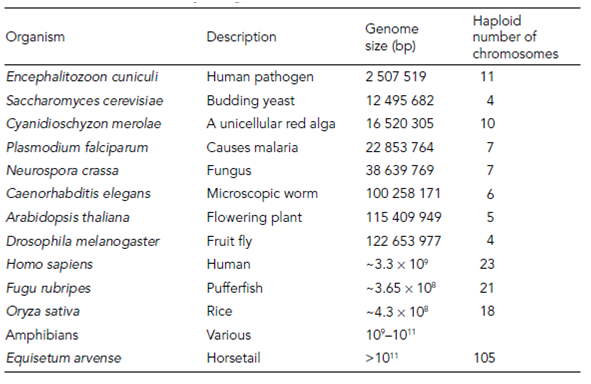Eukaryotic genomes
The smallest eukaryotic genome is that of the parasite Encephalitozoon cuniculi 2.5 million bp, and many eukaryotic microorganisms have smaller genomes than the larger more differentiated organisms. Eukaryote genomes are characterized through having a large number of chromosomes among 4 and 105 in the haploid state, Table 3 but do not generally have stable extrachromosomal DNA as plasmids.
Table 3. Features of eukaryotic genomes

As well as the nuclear chromosomes, some of the cell organelles (mitochondrion, chloroplast) have their own chromosomes, which code for proteins specific for the function of the organelle. For detailed information on the human genome, consult Genomes 3 (Brown TA (2007) Garland Science).
Fungal genomes are characterized through their lack of introns (only 43% of Saccharomyces pombe genes contain introns of a total of 4730). These introns are small being only 50–200 bp in size compared with the introns of >10 kb in mammals. While the genes are not as tightly packed as in Bacteria or Archaea fungal genomes are information-rich and contain little repetitive DNA 50–60% of the S. cerevisiae nuclear genome is transcribed compared with 33% of Schizophyllum commune and only 1% in Homo sapiens.